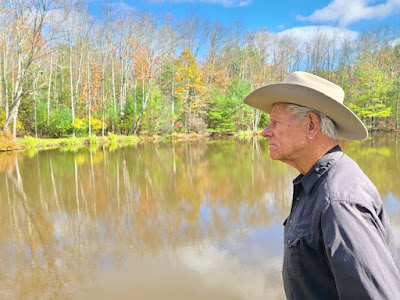Little Willie John's Worst Career Move: An Incident from Nevada Bob's Police Days in Seattle
 |
| Photo credit: Gary Firstenberg |
I, like many teens who came of age in the Sixties, was unaware of how many of the pop singles we listened to had their origins in black R&B. The things we've learned in retrospect could fill volumes. There's a whole chapter devoted to this in David Halberstam's The Fifties.
The McCoys' two big hits in 1965 were "Hang On Sloopy" and "Fever." I never knew that the song Fever had been first recorded by Little Willie John. In fact, it had been a #1 hit on the R&B charts in 1956. Over a five year period Little Willie had 13 songs reach the Top Ten on the R&B charts. He also had many regional hits including "Leave My Little Kitten Alone," of which The Beatles recorded five takes while recording Beatles For Sale in August 1964. The song was very popular in the Northwest, which was the Beatles' second stop on their first tour of America in 1964 and undoubtedly where they picked it up.
William Edward "Little Willie" John was born November 15, 1937. He was posthumously inducted into the Rock N Roll Hall of Fame in 1996.
This gray house was located in Nevada Bob Gordon's precinct when he was a young cop in Seattle. It served as an after hours music club in a black neighborhood. It was also a gambling joint and the Seattle police took bribes to look the other way as regards happenings here. Little Willie John occasionally showed up here after concerts and on October 17, 1964, he dropped in there after a performance at the Magic Inn.
 |
| Source: HistoryLink.org |
The next stop, now after midnight, was this illicit night den at 918 23rd Avenue. While there he got into an argument with another patron, a 6'2"ex-con railroad worker named Kenneth Roundtree. Roundtree weighed 200 pounds, Little Willie was only 5' 4" and more a flyweight. Roundtree liked to mix it up.
Whatever happened triggered the big man, who slugged Little Willie in the mouth. Willie fell back into the kitchen and Roundtree followed him in to do more damage. Willie grabbed an ice pick and stabbed his assailant in the chest. Two men lifted Roundtree to his feet and they attempted to walk him to the door when he fell to the floor dead in the living room. As it turns out, the ice pick nicked Roundtree's aorta.
This wasn't Little Willie's first trouble with the law. He had already jumped bail earlier that year after assaulting a man in Florida with a broken bottle.
A blog post about Little Willie, titled Fever and Fate, had this to say about the singer's career as a performer and recording artist.
Many of John’s hits were sassy blues shuffles, but he seemed to save something extra for his ballad performances. On unhurried masterpieces like “Talk To Me” and “A Cottage For Sale,” John’s voice, with its seemingly unlimited range, relentlessly hip phrasing, the ability to grab hold of an unadorned melody and take it to a stunning territory all his own, and—the trademark of all great r&b vocalists—an overriding tone of bluesy regret.
* * *
I asked Nevada Bob Gordon about this house and the night Little Willie was taken into custody. Bob said he knew this place well. "It was owned by Big Louie, who paid us off once a month to stay away. Big Louie would entertain black performers in the music scene. This was a house on our beat, but I happened to take that Saturday night off. My partner Lloyd was working that shift when the call came in."
They had called the police saying that someone had had a heart attack. When the officers arrived one of them noticed blood.
"We never had any trouble there except that one night," Nevada Bob told me this week.
After that fight at Big Louie's, Little Willie's career was over. He was convicted and sentenced to 20 years. According to HistoryLink:
During his incarceration John reportedly got into a few more fights, was abused by guards, made some new buddies, wrote songs, and even performed a number of times for his fellow inmates. Among the notables who reportedly made the pilgrimage to Eastern Washington to show their respect for their old friend and try to cheer him up were singing stars Aretha Franklin and James Brown.
In 1968 James Brown did an entire tribute album to Little Willie, whom he believes died that year of a broken heart.
* * *
Nevada Bob Gordon's circuitous career began in Seattle where he served as a cop. Eventually, the authorities "cleaned house" and Bob had to forge a new life. These early experiences taught him the importance of integrity and resilience. Stories from his early years in the Seattle Police Department can be found in his eye-opening 50 Years with the Wrong Woman.
https://www.youtube.com/watch?v=aRrEQcEG5KY
Nevada Bob is a singer, songwriter, sage, humorist and storytelling author of 50 Years with the Wrong Woman.



Comments
Post a Comment